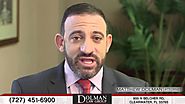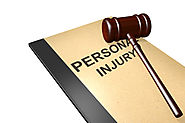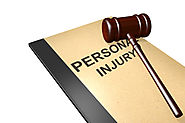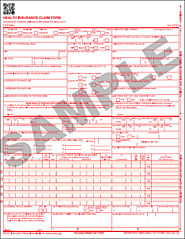-
About
- About Listly
- Community & Support
- Howto
- Chrome Extension
- Bookmarklet
- WordPress Plugin
- Listly Premium
- Privacy
- Terms
- DMCA Copyright
- © 2010-2025 Boomy Labs


 Matthew A. Dolman
Matthew A. Dolman
Listly by Matthew A. Dolman
The legislative intent behind Personal Injury Protection (PIP) is to enable expeditious medical treatment without having to wait for a court of law to opine on the subject

Florida automobile insurers are hoping a court lifts an injunction that has blocked portions of the State's 2012 no-fault law from taking effect. Recently, Florida's First District Court of Appeal heard oral arguments in the case, which has its origins in a 2012 rewrite of the Florida's PIP law.

In Florida, state law requires that every registered motor vehicle be insured for at least a minimum of $10,000.00 of personal injury protection. This coverage is more commonly known by the acronym PIP, or Florida no-fault law. PIP protects vehicle owners by insuring their automobile no matter who is at fault for the accident.

Has your medical practice received a denial of Personal Injury Protection (PIP) payment for Massage Therapy, Acupuncture, or facing the $2,500.00 limit due to Emergency Medical Condition (EMC) determination, or a non-determination? Here's a growing list of Florida insurance carriers disregarding Judge Lewis' injunction pertaining to the 2013 amendment to the Florida PIP Statute; Myers [...]

Ladies and Gentlemen, they've done it again. The Insurance industry lobbied and successfully won a legislative victory and it's going into law within the next three months. We spoke a few months ago about the number of "Things You Won't See in Court." One particular issue we noted was that juries are never told in [...]

After an unexpected and heated debate session that took place in the Florida Senate in March, lawmakers finally agreed on personal injury protection reform, which was aimed to minimize automobile insurance fraud. Fraudulent claims in Florida were highest in the nation in 2011, with an estimated $1 billion loss for insurance carriers.

A very recent decision handed down by the Florida Supreme Court, in Geico General Insurance. Co. v. Virtual Imaging Servs., Inc., is drawing attention due to its important implications regarding Florida's PIP laws. PIP is an acronym that stands for "Personal Injury Protection." PIP makes Florida a "no fault state," where insurance benefits are paid [...]

As a result of never ending advertising by lawyer referral services such as 411-Pain and Ask-Gary you have likely heard the message that it is paramount that you commence treatment within 14 days of an automobile accident. What is the basis for this message and is it accurate?

No other provision in the current PIP statute, that went into effect on January 1, 2013, has created more litigation than the ambiguous emergency medical condition clause. Ironically, resulting in the very problem the Florida legislature, in their wisdom, sought to eliminate; PIP litigation. To-recap, the relevant provisions of the No-Fault statute state as follows: [...]

Well it's 2014 and by now most medical providers, including MRI facilities, are well acclimated to the emergency medical condition clauses of Florida's Motor Vehicle No-Fault Law; acclimated but still sufficiently confused. To-recap, the relevant provisions of the No-Fault statute state as follows: 3. Reimbursement for services and care provided in subparagraph 1.

3. Reimbursement for services and care provided in subparagraph 1. or subparagraph 2. up to $10,000 if a physician licensed under chapter 458 or chapter 459, a dentist licensed under chapter 466, a physician assistant licensed under chapter 458 or chapter 459, or an advanced registered nurse practitioner licensed under chapter 464 has determined that the injured person had an emergency medical condition.

I've received several requests for a sample version of the PIP EMC form. Keep in mind that there is no specific form that is required. This is just a basic form that medical providers can use. In fact, you don't need to use a form.

The amended Florida PIP Statute found under 627.736 and 627.732 (which expressly defines Emergency Medical Condition in Florida), has left many physicians in the dark as to what truly constitutes such a condition. Fla. Stat. 627.732 expressly defines an "Emergency medical condition" (hereinafter referred to as "EMC") means a medical condition manifesting itself by acute [...]

By now the industry knows that massage therapy services are not reimbursable under Florida PIP Insurance, regardless of who performs them. However, manual therapy (CPT CODE 97140) modalities are routinely denied by Progressive insurance company on the basis of being massage therapy. Progressive is misguided because manual therapy is not the same as massage therapy [...]

In the plethora of paperwork that medical providers have PIP patients fill out at the initial visit, none is more important and often misunderstood as the assignment of benefits, or AOB. The AOB functions as the authority for medical provider to get paid PIP benefits but also to file a PIP suit against the insurance [...]

One of the seldom known portions of your own automobile policy is that under the “Florida No–Fault Statute” (Fla.Stat. 627.736) you may be able to claim lost wages when you are injured in a motor vehicle accident, even when you are the at-fault driver. As part of the No-Fault Statute, it does not place the blame and liability of injuries/lost wages on one party or another. Instead, no matter who is at fault, in the crash the injured person has upwards of $10,000 in personal injury protection benefits that can be used towards treatment and/or lost wages.

Personal injury attorney Matt Dolman speaks about uninsured motorist protection and how to get proper insurance compensation after an auto accident.

In a decision that came out on August 31, 2016, the Fourth District Court of Appeals set a precedent that will control the State of Florida when it comes to Emergency Medical Condition determinations. The case of Medical Center of The Palm Beaches d/b/a Central Palm Beach Physicians & Urgent Care, Inc. a/a/o Carmen Santiago v. USAA Casualty Insurance Company (4th DCA, 2016) is the only DCA court to give an opinion on the issue of EMC, meaning that for the time this case is the controlling law in all of Florida.

Florida Law1 sets out very strict requirements for auto insurance, including the requirement that all motorists carry a coverage called personal injury protection (PIP).2 This coverage is meant to pay for your medical bills, income replacement, and other specified losses if you are in a car accident – no matter who was at fault for the accident. This type of coverage is intended to decrease the number of lawsuits filed in Florida courts after car accidents and to ensure you have self-coverage whether or not the other driver has necessary insurance.

In a decision that came out on August 31, 2016, the Fourth District Court of Appeals set a precedent that will control the State of Florida when it comes to Emergency Medical Condition determinations. The case of Medical Center of The Palm Beaches d/b/a Central Palm Beach Physicians & Urgent Care, Inc. a/a/o Carmen Santiago v. USAA Casualty Insurance Company (4th DCA, 2016) is the only DCA court to give an opinion on the issue of EMC, meaning that for the time this case is the controlling law in all of Florida.

One of the seldom known portions of your own automobile policy is that under the “Florida No–Fault Statute” (Fla.Stat. 627.736) you may be able to claim lost wages when you are injured in a motor vehicle accident, even when you are the at-fault driver. As part of the No-Fault Statute, it does not place the blame and liability of injuries/lost wages on one party or another. Instead, no matter who is at fault, in the crash the injured person has upwards of $10,000 in personal injury protection benefits that can be used towards treatment and/or lost wages.

We provide legal analysis of the most frequently asked questions concerning Florida’s no fault law.

Getting in an accident is a stressful experience. Not only does one worry about the complications that can be caused by being in an accident, one also worries about the financial impact of the accident. Some accidents can be very expensive as a result of injuries to either party involved, damage to the vehicle, and much more.

Florida is one of the several states across the country that requires its drivers to maintain mandatory minimum insurance coverage for purposes of covering personal injury in the event of an action. Personal Injury Protection, better known as PIP, is Florida’s minimum no-fault insurance law.

How to properly fill out the HCFA 1500 form in order to receive PIP benefits for a car accident. Common mistakes on this form could cost you big. This article looks at a very basic thing you can control, the information placed on a Health Insurance Claim Form. Better known as a HICF or HCFA (pronounced Hick-Fa) the HCFA is the approved document for the Centers for Medicare and Medicaid Services (“CMS”). Also known as a CMS 1500 or HCFA 1500 form. Essentially every person in medical billing and coding is familiar with this document.
(click on this article to learn more)

In this article we will discuss how the Florida No-Fault law (Florida Statute 627.736) is effected by your choice of destination and choice of vehicle. This article assumes that the reader is a person insured to drive, owns a vehicle, and is insured with a Florida-based policy.
Those scenarios are:
(click on this article to learn more)

Clearwater injury attorney Matthew Dolman, is a highly regarded advocate for injury victims. He was selected by his colleagues as a Florida Superlawyer published by Thompson Reuters. Matthew is a lifetime member of the Million Dollar Advocates Forum and the Multi-Million Dollar Advocates Forum.
Matthew handles personal injury claims throughout the State of Florida.